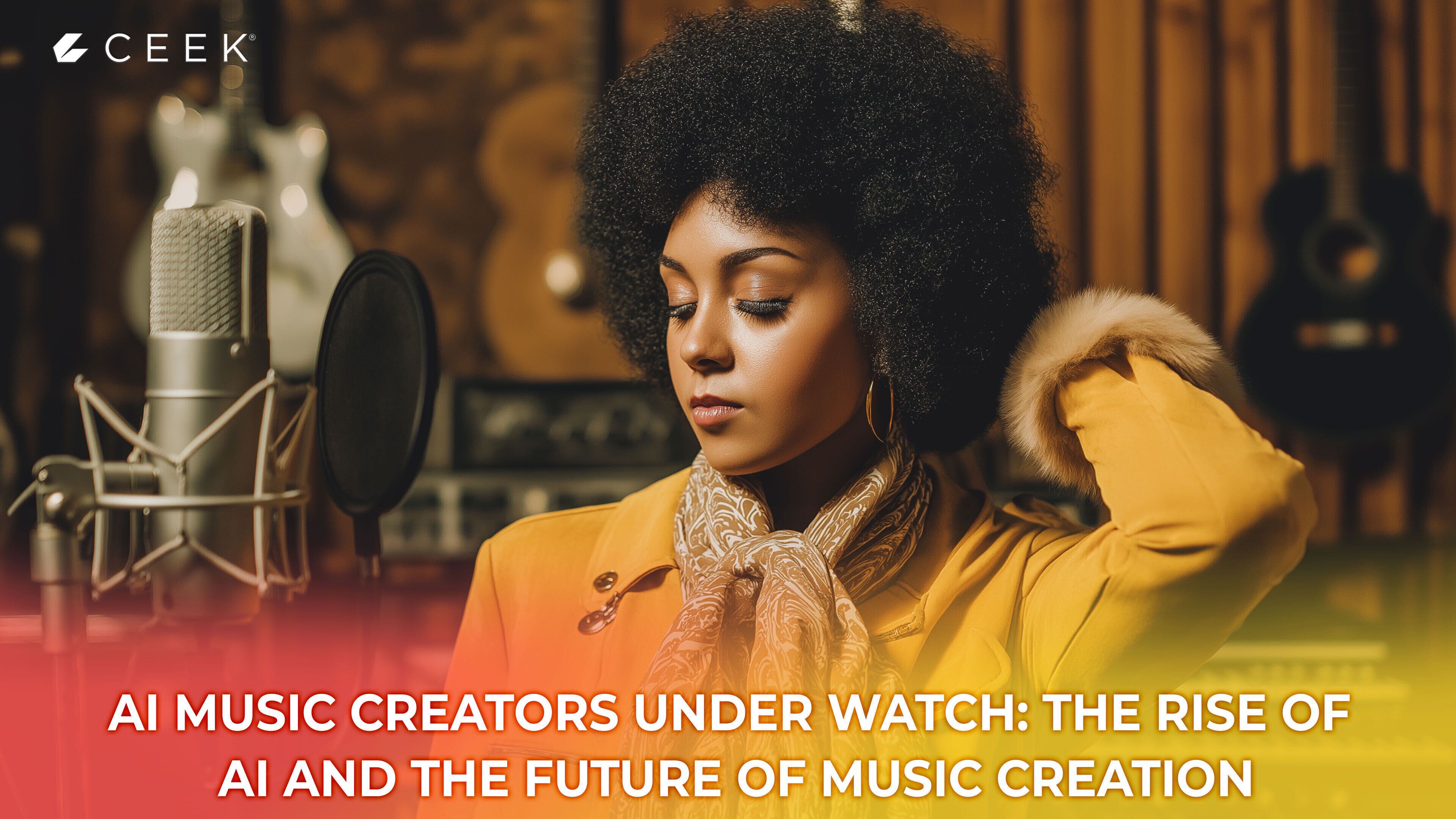



AI Music Creators Under Watch: The Rise of AI and the Future of Music Creation
The world of music creation has seen an unprecedented shift in recent years, with AI playing an increasingly prominent role in how music is composed, produced, and performed. As AI-powered music creation tools become more sophisticated, the boundaries between human and machine-made music continue to blur. With this rapid evolution comes a series of questions: Who controls the rights to AI-generated music? Will AI replace human creativity? And how will artists navigate this new landscape while still maintaining their unique voices?
As AI music creators gain momentum, platforms like CEEK are ensuring that human creators continue to be at the forefront of the creative process. Here’s a look at the rise of AI music creators and how platforms like CEEK are shaping the future of music in this new era.
The Rise of AI Music Creators
AI music creators are revolutionizing the way music is made. From generating melodies to composing full songs, AI tools can now mimic complex musical styles and structures, often producing tracks in seconds. These tools are trained on vast datasets of existing music, using machine learning to analyze patterns in rhythm, harmony, and melody. With just a few inputs—such as genre, mood, or tempo—AI systems can create music that is functional, catchy, and sometimes even groundbreaking.
As more creators turn to AI tools, the question arises: how much of this music can truly be called “art”? While AI can create compositions that adhere to popular trends and structures, it lacks the nuance and emotional depth of human creators. Human musicians write songs driven by personal experience, emotion, and cultural influence, which are things that AI cannot replicate. Despite this, AI-generated music is becoming a viable option for many industries, from advertising to film, where the need for quick, customized music is high.
The Ethical and Legal Landscape of AI Music Creation
With AI music creators on the rise, ethical and legal concerns have begun to surface. Who owns the rights to music generated by AI? Is it the software developers who created the AI tools? The individuals who input the parameters? Or does the music belong to no one at all? These questions are at the heart of ongoing debates about the future of AI in creative industries.
In many jurisdictions, intellectual property laws do not yet account for AI as a creator, meaning there is uncertainty around how to protect AI-generated work. While human artists can copyright their creations, it’s unclear whether AI-generated compositions are eligible for protection, and if so, who holds the rights. This ambiguity has the potential to create confusion and conflict, especially as AI-generated music becomes more mainstream.
CEEK: Empowering Creators in the Age of AI
As AI music creation tools continue to grow in power and influence, CEEK is playing a pivotal role in ensuring that human creators remain in control of their work. The CEEK Creator Hub offers artists the opportunity to integrate AI technology into their creative process while still maintaining ownership of their music and intellectual property.
By using CEEK Token, creators can monetize their AI-assisted music in a decentralized, transparent ecosystem, ensuring that their work is rewarded fairly. CEEK provides a space where artists can collaborate with AI, use advanced music tools, and still preserve their creative integrity. Rather than AI replacing the human element of music, CEEK allows creators to work alongside technology to enhance their output while staying true to their artistic vision.
Through the CEEK platform, artists can experiment with AI-generated music while also sharing their creations with fans in innovative ways. Virtual concerts, immersive live shows, and other interactive experiences powered by CEEK allow fans to engage with music in new and exciting ways, further fostering the connection between artist and audience.
The Future of Music Creation: A Collaborative Approach
The future of music creation will likely not be dominated by AI but will instead be shaped by a collaborative approach. AI music tools are a powerful asset for artists, offering them the ability to experiment, explore new sounds, and rapidly produce music that might have taken much longer to create using traditional methods. However, AI is a tool, not a replacement for human creativity.
Platforms like CEEK are leading the charge in empowering creators to use AI to their advantage. By providing a space where AI and human creativity can work hand in hand, CEEK is fostering an environment where artists can grow and innovate without losing their unique voice. With the help of CEEK Token, artists are able to create, share, and monetize their work, ensuring they retain ownership and control over their creations.
In this new age of music creation, CEEK is making it clear that the future of music is about collaboration, not replacement. AI will continue to play a growing role in how music is made, but it will always be human artists who bring the soul, emotion, and authenticity that truly connects with listeners.
Conclusion: Navigating the AI Music Revolution
As AI music creators become more prominent, the industry will face important challenges related to copyright, ownership, and the role of technology in creative processes. While AI has the potential to enhance the music-making process, it’s clear that human creativity remains at the core of great music.
By offering a platform where artists can collaborate with AI while maintaining control over their work, CEEK is shaping the future of music in a way that respects both technological innovation and artistic integrity. As the lines between AI and human creators continue to blur, CEEK ensures that the future of music creation remains a space where artists can thrive and innovate in an ever-evolving landscape.
The AI music creator revolution is here, but it’s the human artists—empowered by platforms like CEEK—who will continue to lead the way in shaping the future of sound. Read more here: https://www.ceek.com/learn/


